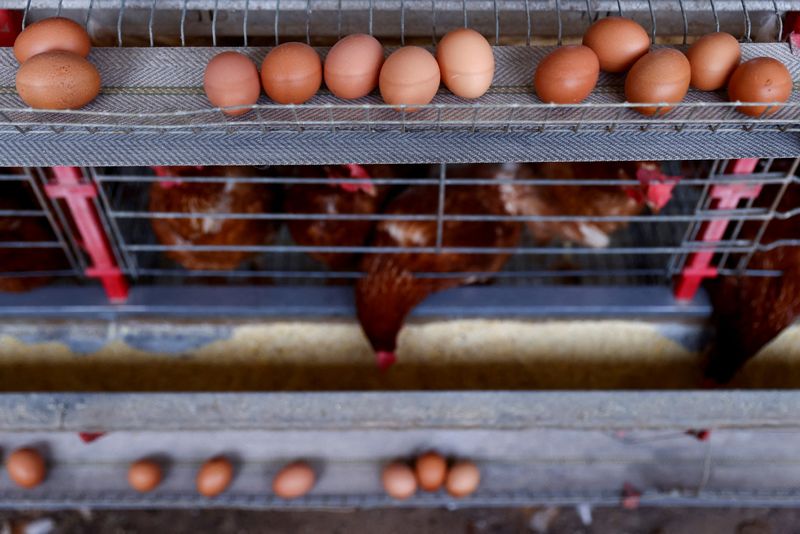April 24, 2025

By Tom Polansek
CHICAGO (Reuters) -The U.S. Department of Agriculture is withdrawing a proposal aimed at reducing Salmonella risks in poultry products for U.S. consumers, the agency said on Thursday, increasing concerns about oversight of the food supply under President Donald Trump.
The withdrawal represents the administration’s latest missed opportunity to protect public health, food safety experts said. It was applauded by the poultry industry, which said the measure would have imposed a financial burden on producers without doing much to reduce contamination risk.
The USDA last month eliminated two committees that advised it on food safety, while the U.S. Food and Drug Administration recently suspended a quality control program for testing milk and other dairy products.
Salmonellae are bacteria that live in animal and human intestines and are shed through feces. People usually become infected by consuming contaminated water or food, and symptoms include diarrhea and fever.
The proposal, which the Biden administration announced last summer, would have set final standards to determine whether raw poultry products are contaminated with certain Salmonella. It also sought to require poultry facilities to use certain procedures to monitor and document their processes for preventing contamination.
The proposal took three years to develop and included input from one of the two suspended food safety committees, the USDA said last year.
It represented a critical shift from reacting to outbreaks toward preventing them, said Darin Detwiler, an associate teaching professor at Northeastern University and food safety adviser.
"The proposal would have, for the first time, set enforceable limits on contamination," he said. "This proposal was a long-overdue step toward aligning poultry safety regulations with modern science and consumer expectations."
The USDA said in an emailed statement that the proposal would have been burdensome for U.S. businesses and consumers and that it did not offer an effective approach to address Salmonella in poultry.
Consumer advocacy group Consumer Reports said the withdrawal will weaken the agency’s ability to respond to outbreaks of foodborne illness.
The CDC estimates Salmonella causes about 1.35 million infections in the United States annually, though only 1 in 30 infections is diagnosed. Resistance to antibiotics is increasing in Salmonella, which can limit treatment options for people with severe infections, according to the CDC.